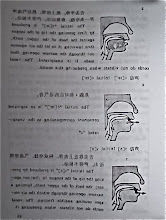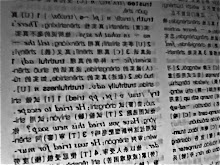V.
Before the elephant: All war is terrorism,
Alcuin thinks, understanding also
that Charlemagne mastered it. And it explains
horses. Majestic form, yes— the musculature of shoulders,
the ligature to sleep standing up. Speed, size,
these, too, for the war machines. But a history
of war, and therefore a history of man, is the history
of vision. (This is true, also, for primitive
infantry, U Boats, and IEDs.) See, monocularly,
the horse is afforded nearly the circle. 350 degrees.
The full set, of course, is itself nothing short of terror:
to see everything that surrounds you at once,
the burden of sight never pardoned, never lightened,
with some tranche of blindness. Which is why
we witness the damnation of the hammerhead shark,
cursed cephalofoil to school in the day, as the light
of the sun, even filtered in the reaches of the deep sea,
is humiliating, not in the exposure of its grotesquerie,
but in the illumination of the oceanic void. God
gave it no gift of mercy with the night: to hunt alone
in 360 degrees of dark. Void of voids.
Alcuin, in all likelihood, knew nothing
of Sphyrnidae sphyrna, but he was versed
in voids and leviathans, and perhaps could concede
some validity in the proposition that the beasts of
aqua incognita coexisted with God prior to
creatio ex nihilo. Such is to see all.
Charlemagne knew, though, that terror,
like power and faith, and well, most things,
is a continuum. There is the terror of knowing all,
and there is the terror of not knowing some.
The terror of the limited: this is the terror of the horse.
Vision denies the horse a narrow band behind him—
perhaps 3 degrees or so at most, a moderate
occlusion of the past. And vision denies
a thicker band before him—10 minus 3 degrees
or so, a greater obstruction of the future.
Charlemagne so computed, and his elephant—
a gift from the Abbasid caliphate Harun al-Rashid
in Baghdad during some nebulous negotiations
in pursuit in vain of an even more nebulous alliance—
accompanied him on marches. Not its size,
but its sudden size before the eyes of the horse:
they would buck, flee, flail, collapse, and not a few
would die of heart failure, so incomprehensible
the unexpected mass of an elephant striking the retina.
No optic nerve can handle such data overload.
We egregiously underestimate Charlemagne's
understanding of horses, which is to say
of man, if we deem his elephant a secret weapon
against horses, which is to say against men.
Man cannot see most of what flanks him,
which explains inconsistencies in empathy
and the consideration of alternate perspectives.
And can see none of what falls behind him.
This explains his knotted relationship with the past:
the prevailing notion of linear temporality,
the high incidence of OCD (there is no need
for diagnosis; this too is a continuum), the inflated sense
of invincibility, and the universality of complex ritualism.
His stereoscopic vision, further, rendered him expert
of swinging from tree to tree, which gave rise
to his thumb, which in turn pushed forth the advent
of his advanced cortex and, to make a long story short,
his fear of death: the core of his consciousness.
Thusly are horses and men attracted—
the one to run, the other to think of it.
and both to dance in terror and knowing,
Alcuin, before Charlemagne and his elephant.
Man's vulnerable cranium, the horses vulnerable legs.
Charlemagne: elephant, vulnerable eye.
John K., 11/3-12/1/2009


